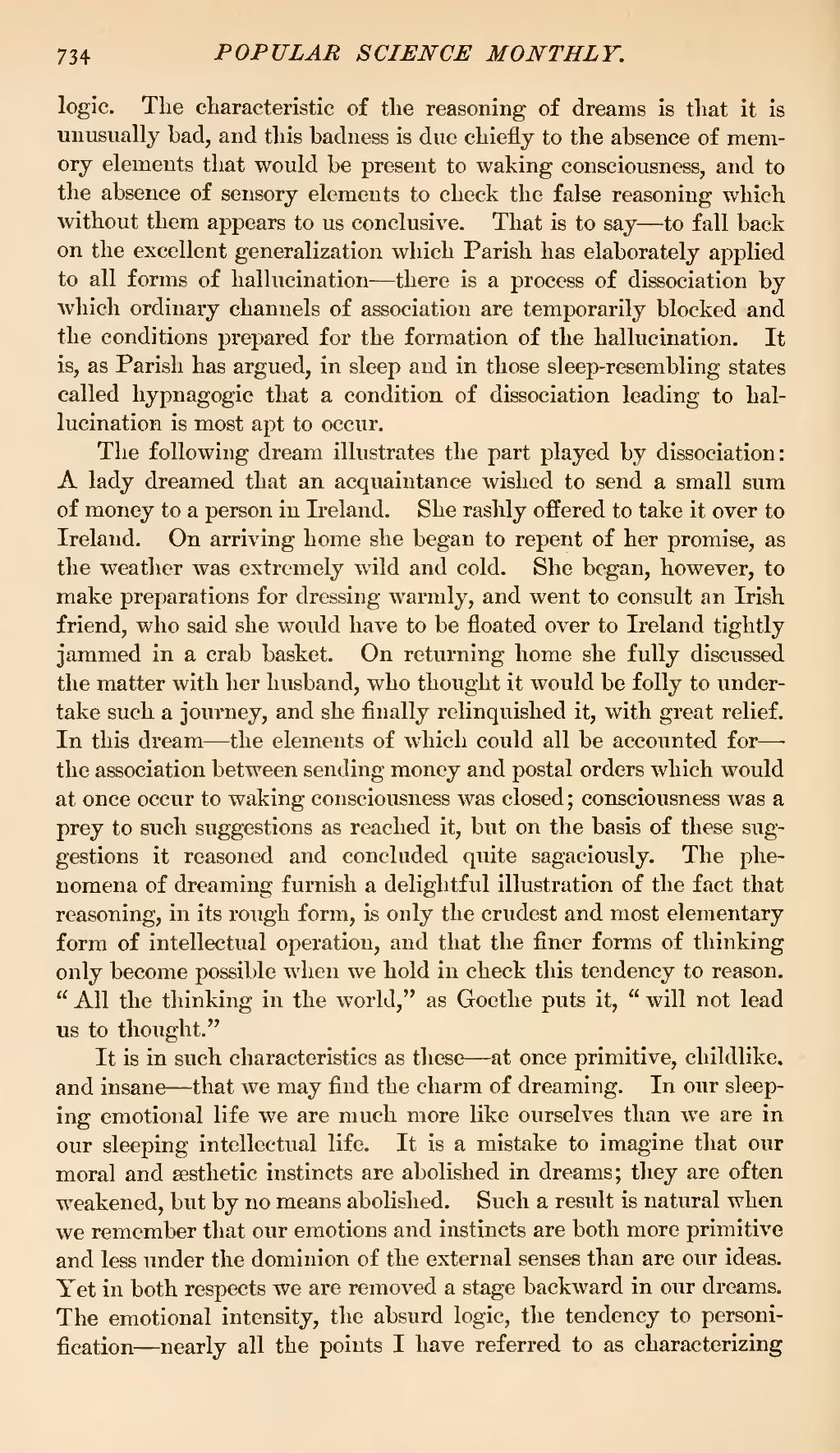logic. The characteristic of the reasoning of dreams is that it is unusually bad, and this badness is due chiefly to the absence of memory elements that would be present to waking consciousness, and to the absence of sensory elements to check the false reasoning which without them appears to us conclusive. That is to say—to fall back on the excellent generalization which Parish has elaborately applied to all forms of hallucination—there is a process of dissociation by which ordinary channels of association are temporarily blocked and the conditions prepared for the formation of the hallucination. It is, as Parish has argued, in sleep and in those sleep-resembling states called hypnagogic that a condition of dissociation leading to hallucination is most apt to occur.
The following dream illustrates the part played by dissociation: A lady dreamed that an acquaintance wished to send a small sum of money to a person in Ireland. She rashly offered to take it over to Ireland. On arriving home she began to repent of her promise, as the weather was extremely wild and cold. She began, however, to make preparations for dressing warmly, and went to consult an Irish friend, who said she would have to be floated over to Ireland tightly jammed in a crab basket. On returning home she fully discussed the matter with her husband, who thought it would be folly to undertake such a journey, and she finally relinquished it, with great relief. In this dream—the elements of which could all be accounted for—the association between sending money and postal orders which would at once occur to waking consciousness was closed; consciousness was a prey to such suggestions as reached it, but on the basis of these suggestions it reasoned and concluded quite sagaciously. The phenomena of dreaming furnish a delightful illustration of the fact that reasoning, in its rough form, is only the crudest and most elementary form of intellectual operation, and that the finer forms of thinking only become possible when we hold in check this tendency to reason. "All the thinking in the world," as Goethe puts it, "will not lead us to thought."
It is in such characteristics as these—at once primitive, childlike, and insane—that we may find the charm of dreaming. In our sleeping emotional life we are much more like ourselves than we are in our sleeping intellectual life. It is a mistake to imagine that our moral and aesthetic instincts are abolished in dreams; they are often weakened, but by no means abolished. Such a result is natural when we remember that our emotions and instincts are both more primitive and less under the dominion of the external senses than are our ideas. Yet in both respects we are removed a stage backward in our dreams. The emotional intensity, the absurd logic, the tendency to personification—nearly all the points I have referred to as characterizing

